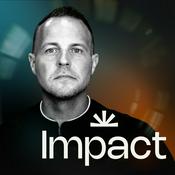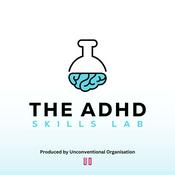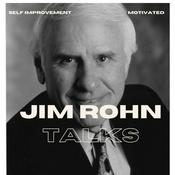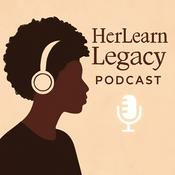Full-Tilt Parenting: Strategies, Insights, and Connection for Parents Raising Neurodivergent Children
Debbie Reber

Latest episode
661 episodes
TPP 231a: Author & Self-Compassion Researcher Dr. Kristin Neff on the Power of Being Kind to Yourself
2/13/2026 | 38 mins.Dr. Kristin Neff, pioneering self-compassion researcher, author, and teacher, talks about the power and benefits of practicing self-compassion as parents to differently wired children.
In our conversation, Kristin shares what she has learned about self-compassion, both through her research and her own experiences parenting an autistic child. She goes deep into what self-compassion really looks like, why we are often more compassionate to others than ourselves, and shares some strategies for strengthening that self-compassion muscle both for ourselves and our kids.
ABOUT DR. NEFF
Kristin Neff is an Associate Professor of Educational Psychology at the University of Texas at Austin. She is a pioneer in the field of self-compassion research, conducting the first empirical studies on self-compassion over fifteen years ago. She has co-developed an empirically supported training program called Mindful Self-Compassion, and is author of the books Self-Compassion: The Proven Power of Being Kind to Yourself, Mindful Self-Compassion Workbook, and Teaching the Mindful Self-Compassion Program: A Guide for Professionals.
THINGS YOU’LL LEARN FROM THIS EPISODE:
How Dr. Neff got into the work of self-compassion research
What it looks like to practice self-compassion
Why we judge ourselves so harshly and what keeps us from being a better self-friend
What it means to practice self-comfort
Strategies parents can use to accept and BE with their suffering
How to teach kids and teens about self-compassion
RESOURCES MENTIONED:
Dr. Kristin Neff’s website
Self-Compassion: The Proven Power of Being Kind to Yourself by Dr. Kristin Neff
The Mindful Self-Compassion Workbook: A Proven Way to Accept Yourself, Build Inner Strength, and Thrive by Kristin Neff:
Teaching the Mindful Self-Compassion Program: A Guide for Professionals by Kristin Neff and Christopher Germer
Learn more about your ad choices. Visit podcastchoices.com/adchoicesTPP 488: OT Kathryn Hamlin-Pacheco on Tactile Defensiveness & the Nervous System
2/10/2026 | 44 mins.Today’s episode is a deep dive into tactile defensiveness and sensory distress, especially around clothing. My guest is Kathryn Hamlin-Pacheco, an occupational therapist who helps kids and families understand their brains and bodies through everyday neuroscience. Kathryn will break down what’s actually happening in the brain and nervous system when children experience tactile defensiveness, and why clothing can feel so overwhelming for some kids. We talk about the role of co-regulation, how parents can help create positive associations with getting dressed, and practical strategies for supporting children in navigating their sensory experiences with more safety and less stress. This episode is a grounding, compassionate look at sensory processing—and a reminder that when we understand what’s underneath the behavior, everything shifts.
About Kathryn Hamlin-Pacheco
Kathryn (Katie) Hamlin-Pacheco, M.S., OTR/L, ASDCS, is an occupational therapist, former teacher, author, and founder of the Brain Executive Program. Kathryn is an Autism Spectrum Disorder Clinical Specialist (ASDCS) and holds certifications in Neuroscience for Mental Health Professionals and in Brain Structure and Function: Application to Sensory Integration and Processing. She graduated from Virginia Commonwealth University with a Master’s degree in Occupational Therapy, where she also worked with the Virginia Leadership Education in Neurodevelopmental Disabilities program to pursue her desire to be an advocate and leader in pediatric healthcare.
She has shared her work at AOTA’s Inspire Conference (the world’s largest gathering of occupational therapy practitioners!), Sensory Integration Education’s international conference, and at William & Mary’s Center for Gifted Education. In addition, Katie has written for OT Practice Magazine, Autism Parenting Magazine, Washington Family Magazine, and Stars & Stripes Magazine. Her book, How to Be a Brain Executive: And Get Sensory Sharp!, was a top Amazon release in two categories.
Things you'll learn from this episode
How tactile defensiveness reflects a nervous system response rather than behavioral resistance
Why understanding sensory processing is essential for supporting children with clothing challenges
How co-regulation helps children feel safe, connected, and more able to tolerate sensory input
Why play and low-pressure practice can make clothing experiences more manageable
How creating calm environments and positive associations supports sensory integration over time
Why sensory health is a vital part of children’s overall well-being
Resources mentioned
Brain Executive Program (Kathryn Hamlin-Pacheco’s website)
Kathryn’s online Sensory Dressing Course
How to Be a Brain Executive: And Get Sensory Sharp! by Kathryn Hamlin-Pacheco
Brain Executive Program on Instagram
Brain Executive Program on Facebook
Deb Dana on Befriending Our Nervous System Using Polyvagal Theory (Tilt Parenting podcast)
Dr. Stephen Porges & Karen Onderko on the Safe and Sound Protocol (Tilt Parenting podcast)
Dr. Mona Delahooke on the Power of Brain-Body Parenting (Tilt Parenting podcast)
Brain-Body Parenting: How to Stop Managing Behavior and Start Raising Joyful, Resilient Kids by Dr. Mona Delahooke
Sensory Processing Differences with Carol Kranowitz (Tilt Parenting podcast)
The Out-of-Sync Child: Recognizing and Coping with Sensory Processing Differences by Carol Kranowitz
Polyvagal Card Deck: 58 Practices for Calm & Change
Polyvagal Practices: Anchoring the Self in Safety by Deb Dana
Debbie’s TedxBerlin talk: What if Feeling Broken Wasn't the End of the Story?
Learn more about your ad choices. Visit podcastchoices.com/adchoices- This is one of only a few solocast episodes I’ve made over the past several years, but I wanted to talk one-on-one with you about self-care. If you’ve read my book or regularly listen to this show, you know I am a big proponent of self-care—I don’t think it’s even close to optional for parents raising neurodivergent kids. And, I also recognize that it can be a hard thing to make time for and prioritize. I get asked a lot about what my self-care looks like, and so today, I’m sharing with you twelve strategies and ideas for creating a sustainable, doable self-care practice. These are all things I rely on
and, I give you my word…they work.
I’ve also created a printable PDF cheat sheet of these strategies in case you want to print them out and post them somewhere where you’ll regularly see them and be reminded of the importance of prioritizing YOU. Grab it on the show notes page.
RESOURCES MENTIONED:
Differently Wired: Raising an Exceptional Child in a Conventional World by Debbie Reber (on Amazon)
The Artist’s Way by Julia Cameron
Yoga With Adriene (YouTube channel)
The Scientific 7-Minute Workout (New York Times)
Year of Yes: How to Dance it Out, Stand in the Sun, and Be Your Own Person by Shonda Rhimes
Dan Pink’s website
Eye to Eye Learn Different Days
Learn more about your ad choices. Visit podcastchoices.com/adchoices - Today’s show is all about navigating the school system when your child has disabilities—and how to do that with clarity, confidence, and a whole lot more support. My guest is Stacey Shubitz, author of the new book Make the School System Work for Your Child with Disabilities: Empowering Kids for the Future. In this episode, Stacey shares her journey as both an educator and a parent, and we dig into what parents really need to understand about special education, effective communication with schools, and the IEP process. She offers practical, empowering strategies for advocating for your child, managing the complexity of the system without losing yourself, and finding moments of joy and meaning along the way, even if (or when) the path feels overwhelming.
About Stacey Shubitz
Stacey Shubitz is a certified literacy specialist and former fourth- and fifth-grade teacher in the New York City Public Schools and a public charter school in Rhode Island. Since 2009, she has been a literacy consultant, supporting teachers with writing instruction. Stacey has also taught graduate literacy education courses at Lesley University and Penn State–Harrisburg.
She is the Chief of Operations and Lead Writer for Two Writing Teachers, a leading resource for writing instruction since 2007. She also co-hosts the Two Writing Teachers Podcast. Stacey earned an M.A. in Literacy Education from Teachers College, Columbia University, and an M.S.Ed. in Childhood Education from Hunter College.
She has published several books about writing instruction, including Welcome to Writing Workshop and Craft Moves. Stacey’s most recent book, Make the School System Work for Your Child with Disabilities: Empowering Kids for the Future, was published by Guilford Press in January 2026. In this book, she shares her experiences as both a parent and an educator, equipping families with real-life stories, inclusive resources, and the knowledge to advocate for their children confidently. Stacey lives in Pennsylvania with her husband and children.
Things you'll learn from this episode
How Stacey’s dual perspective as an educator and parent strengthens her advocacy for families in special education
Why educating yourself about your rights, school processes, and the IEP system is essential for effective advocacy
How partnerships with teachers — built through clear, ongoing communication and regular check-ins — support your child’s success
Why building a support network helps parents navigate the overwhelm of special education
How practicing consistent self-care and finding joy in small moments protects parents from burnout
Why celebrating every bit of progress, no matter how small, helps families stay grounded and encouraged
Resources mentioned
Stacey Shubitz’ website
Make the School System Work for Your Child with Disabilities: Empowering Kids for the Future by Stacey Shubitz
Parenting Training & Information Centers
Two Writing Teachers Blog
Two Writing Teachers Podcast
Stacey Shubitz’s Substack
Stacey Shubitz on Instagram
Stacey Shubitz on LinkedIn
The Kids Who Aren’t Okay: The Urgent Case for Reimagining Support, Belonging, and Hope in Schools by Dr. Ross Greene
Strength-Based Assessments with Dr. Jade Rivera (Tilt Parenting podcast)
The Strength-Based Assessment Lab at Bridges Graduate School of Cognitive Development
Learn more about your ad choices. Visit podcastchoices.com/adchoices TPP 429a: Dr. Liz Angoff on Best Practices for Talking with Kids About Diagnoses
1/30/2026 | 35 mins.Picture this. You’re sitting in the neuropsych’s office after you just got your kid’s diagnosis. You’re relieved to have some information on how to help them but have no clue how to explain their neurodivergence to them. Do you talk about the science? Do you wait until they are a certain age where they might understand more about their brains? Or maybe you think about waiting for them to start asking the questions. If you can relate, you’re not alone in wondering what the best way to have this conversation is. And the reality is, the how and when does matter. Dr. Liz Angoff has spent years working with children and families to make learning differences easier to understand. She’s the author of the Brain Building Books, a resource designed to help kids see their neurodivergence as a strength rather than a limitation.
In our conversation, Liz shares why early and open discussions about neurodiversity are so important, how parents can guide their children through assessments in a way that fosters trust, and why shifting from a deficit-based model to a discovery-based approach can be transformative for the whole family. We also explore how different kids process this information in their own ways—some may embrace it, while others, especially teenagers, might resist labels altogether. She also provides thoughtful strategies to meet kids where they are and help them feel seen and supported. If you’ve ever struggled with how to talk to your child about their neurodivergence, this episode is full of practical insights and reassurance.
Liz Angoff, Ph.D., is a Licensed Educational Psychologist with a Diploma in School Neuropsychology, providing assessment and consultation services to children and their families in the Bay Area, CA. She is the author of the Brain Building Books, tools for engaging children in understanding their learning and developmental differences. More information about Dr. Liz and her work is available at www.ExplainingBrains.com.
Things you'll learn from this episode
* How early conversations about neurodiversity help normalize differences and make children feel unique and valued
* Why parents should approach assessments as discovery processes rather than problem-solving exercises
* How to prepare children for assessments by discussing their experience to foster understanding and trust
* The importance of respecting how children choose to process information about their neurodivergence, especially teenagers resistant to labels
Learn more about your ad choices. Visit podcastchoices.com/adchoices
More Education podcasts
Trending Education podcasts
About Full-Tilt Parenting: Strategies, Insights, and Connection for Parents Raising Neurodivergent Children
Feeling overwhelmed by the complexities of raising a neurodivergent child? Full-Tilt Parenting is here to help. Hosted by parenting activist and author Debbie Reber, this podcast is your go-to resource for navigating life with ADHD, autism, learning disabilities, PDA (Pathological Demand Avoidance), giftedness, and twice-exceptional (2e) kids. With expert interviews and candid conversations, you'll discover practical solutions for things like school challenges and refusal, therapy options, and fostering inclusion, social struggles, advocacy, intense behavior, and more — all through a strengths-based, neurodiversity-affirming lens. Whether you're struggling with advocating for your child at school or seeking ways to better support their unique needs, Debbie offers the guidance and encouragement you need to reduce overwhelm and create a thriving, joyful family environment. It's like sitting down with a trusted friend who gets it. You’ve got this, and we’ve got your back!
Podcast websiteListen to Full-Tilt Parenting: Strategies, Insights, and Connection for Parents Raising Neurodivergent Children, 2 Addicts & A Moron and many other podcasts from around the world with the radio.net app

Get the free radio.net app
- Stations and podcasts to bookmark
- Stream via Wi-Fi or Bluetooth
- Supports Carplay & Android Auto
- Many other app features
Get the free radio.net app
- Stations and podcasts to bookmark
- Stream via Wi-Fi or Bluetooth
- Supports Carplay & Android Auto
- Many other app features


Full-Tilt Parenting: Strategies, Insights, and Connection for Parents Raising Neurodivergent Children
Scan code,
download the app,
start listening.
download the app,
start listening.








































